|
Scientists and resource managers have conducted research and resource management studies for decades in Sequoia and Kings Canyon National Parks. Science helps guide decisions and park operations and enriches park interpretive programs. Visit the links below to learn more about science in the parks. Scientists interested in conducting research here can find information below about park research permits and park research priorities. Current Projects and ProgramsSequoia and Kings Canyon National Parks rely on a diversity of research and applied field work to manage park resources and make informed decisions. In addition to National Park Service projects, 60-80 research projects from universities and other agencies and organizations are permitted to use study sites in the parks in any given year. 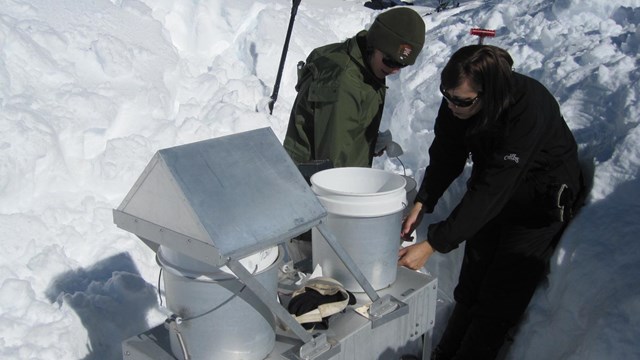
Monitoring Park Air Quality
Learn about the parks' air quality monitoring program, which monitors ozone, visibility, and atmospheric deposition. 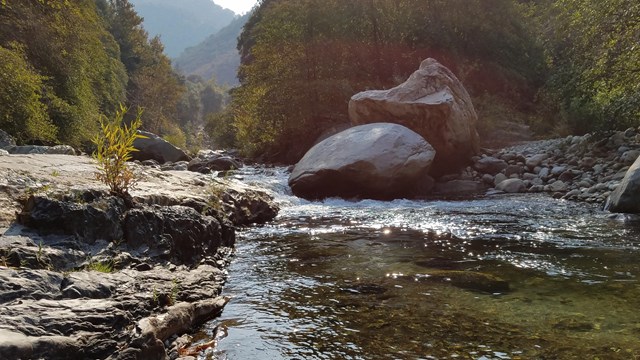
Exploring Soundscapes
Learn more about how scientists study park soundscapes to characterize biodiversity. 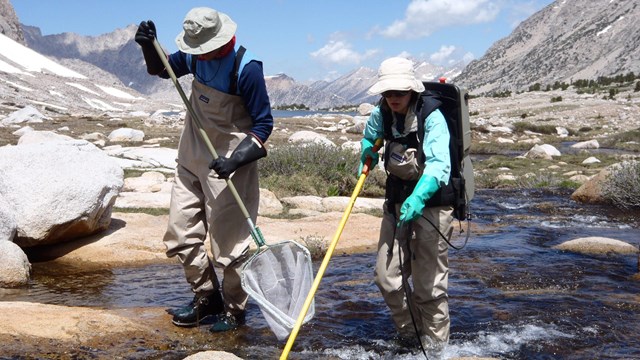
Ecological Restoration
Learn about how wildlife, meadows, high-elevation lakes, and giant sequoias have benefitted from restoration projects. 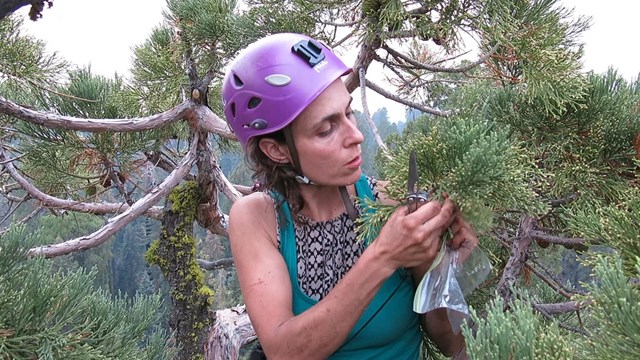
Giant Sequoias and Drought
Recent severe drought and tree mortality prompted research to study the sensitivity of giant sequoias to drought. 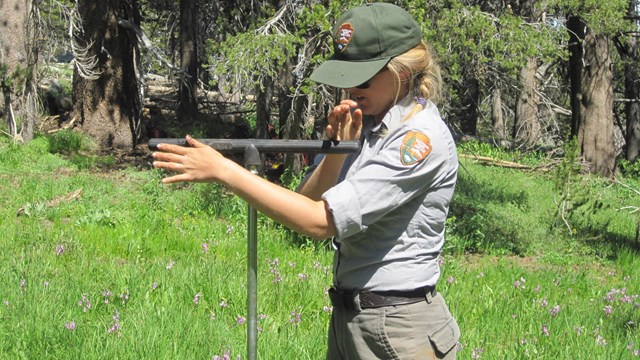
NPS Inventory & Monitoring
Vital signs monitoring in Sierra Nevada parks includes wetlands, lakes, birds, high-elevation forests, rivers, and climate. 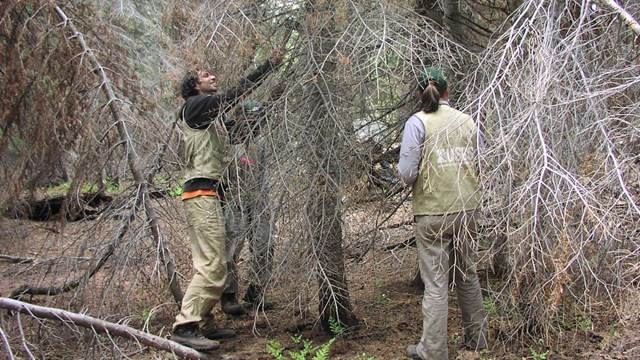
U.S. Geological Survey Field Station
The USGS Sequoia-Kings Canyon Field Station conducts research that informs the parks' natural resources and fire management programs. 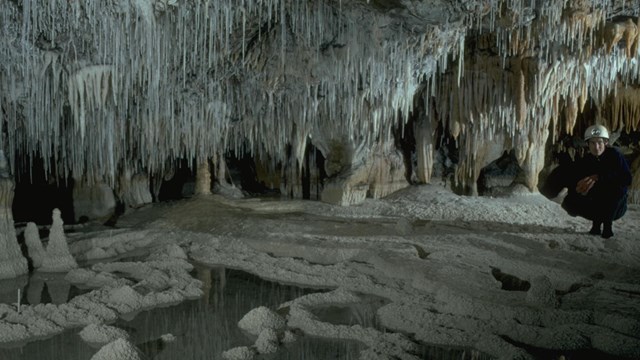
Managing Park Caves
Learn about how we study and manage park caves. 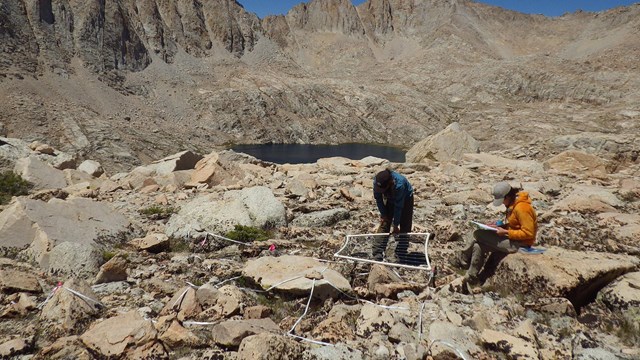
Monitoring Alpine Vegetation
Sequoia National Park is part of a global network monitoring alpine plants at the tops of the world's highest peaks. Doing Science in the Parks
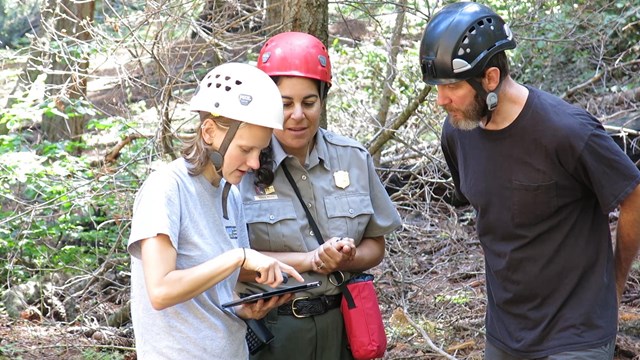
Research Permits
Learn how to apply for a permit to conduct research in the parks. Photo: Wendy Baxter, University of California, Berkeley. 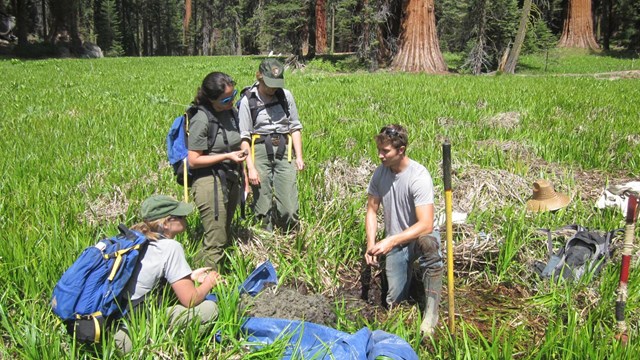
Research Priorities
Research priorities identify information needed to guide park resource management decisions and activities. 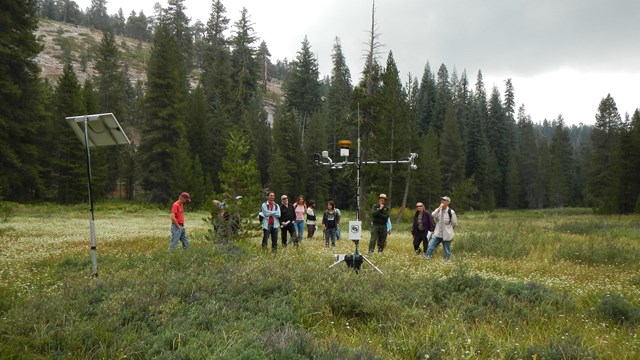
A Science Learning Center-Without-Walls
A Science Learning Center supports research, science, and education by providing a variety of infrastructure and services. Science Symposium
|
Last updated: September 6, 2023
